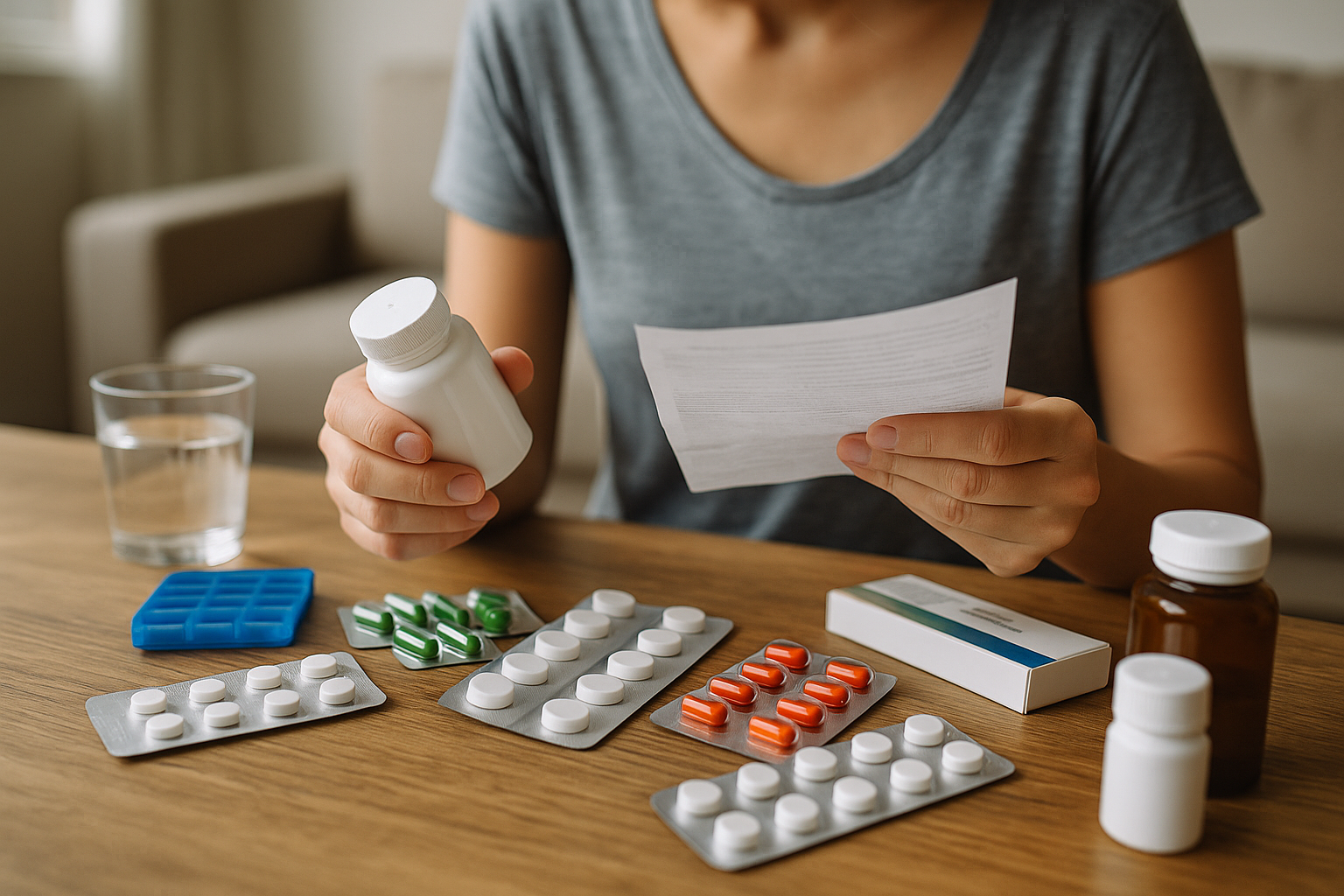A silent crisis: Self-medication fuels drug resistance and health burden
Easy access to over-the-counter medications, rising healthcare costs, and cultural norms encourage individuals to bypass doctors and self-treat even conditions requiring professional diagnosis. In many parts of the world, antibiotics and other high-risk medications can be purchased without a prescription, a practice that fuels widespread misuse.

A silent health crisis is unfolding worldwide as millions increasingly rely on self-medication to treat illnesses without professional supervision. A new study sheds light on the dangerous patterns of drug misuse, their associated risks, and the urgent need for coordinated action.
Published in Healthcare, the study "Self-Medication as a Global Health Concern: Overview of Practices and Associated Factors—A Narrative Review" provides a comprehensive overview of how self-administered medicine use has evolved, identifying both the benefits of responsible practices and the catastrophic consequences of misuse.
The findings raise alarm about the growing burden on healthcare systems, the rise in antimicrobial resistance, and the socioeconomic costs associated with inappropriate self-care.
Why is self-medication becoming a global health threat?
The review traces the surge in self-medication to several interlinked factors. Easy access to over-the-counter medications, rising healthcare costs, and cultural norms encourage individuals to bypass doctors and self-treat even conditions requiring professional diagnosis. In many parts of the world, antibiotics and other high-risk medications can be purchased without a prescription, a practice that fuels widespread misuse.
The COVID-19 pandemic further intensified this trend. As fear and uncertainty spread, many individuals resorted to unverified treatments, including excessive use of antimicrobials, which accelerated the development of drug resistance. The study reveals that inappropriate self-medication practices are not confined to low-income countries; they are pervasive across all socioeconomic levels, making this a truly global issue.
While self-medication can ease pressure on overstretched healthcare systems when used responsibly, the review warns that current patterns lean heavily toward misuse. Instead of reducing healthcare burdens, they are creating new health complications, adding costs, and endangering lives.
What risks are linked to irresponsible self-medication?
The dangers associated with unsupervised drug use are wide-ranging and severe. Antimicrobial resistance emerges as the most pressing threat. The misuse of antibiotics allows resistant bacteria to thrive, rendering standard treatments ineffective and threatening to reverse decades of medical progress.
The study also highlights risks such as misdiagnosis, where individuals treat symptoms without recognizing serious underlying illnesses. This often leads to delayed medical intervention and worsens disease outcomes. Furthermore, inappropriate dosages and dangerous drug interactions are common, increasing the likelihood of side effects, hospitalizations, and even fatalities.
Beyond individual risks, the economic implications are significant. Treating complications from self-medication strains healthcare resources and drives up costs, particularly in countries already facing limited access to professional care. These consequences underline the urgency for interventions to mitigate this growing crisis.
What measures can prevent a self-medication catastrophe?
The research points out that addressing the self-medication problem requires a multi-pronged global strategy. The first step is public education. Awareness campaigns are essential to inform individuals about the dangers of improper drug use and the importance of consulting healthcare professionals. Empowering people with knowledge can transform self-medication from a risky behavior into a responsible practice.
The study also calls for stronger regulations on the sale of antibiotics and other high-risk medicines. Stricter prescription requirements and better enforcement of existing laws can curb the easy availability that drives misuse. Additionally, the implementation of surveillance systems to monitor medicine usage patterns is crucial in identifying at-risk populations and tailoring interventions.
Healthcare providers have a key role to play. By educating patients, providing clear instructions for safe medicine use, and discouraging reliance on unverified remedies, they can bridge the gap between accessibility and safety. The study also highlights the need for international cooperation, as drug misuse and resistance do not respect borders.
Further, interventions must consider the cultural and economic context of each region. Localized strategies that address specific community behaviors and healthcare access issues are more likely to succeed than one-size-fits-all policies. The integration of education, regulation, and local engagement is key to preventing self-medication from escalating into a full-scale health disaster.
The road ahead: Responsible self-care or global crisis?
While self-medication can be part of positive self-care, its current misuse has transformed it into a global health threat. The review makes it clear that without urgent measures, the world could face a future where common infections become untreatable, healthcare systems collapse under preventable burdens, and lives are lost unnecessarily.
The path forward requires education, stricter regulations, and global collaboration. Policymakers, healthcare professionals, and communities must work together to ensure that self-medication is practiced safely and responsibly. By doing so, the benefits of self-care can be preserved while protecting society from the devastating risks of unchecked drug misuse.
- FIRST PUBLISHED IN:
- Devdiscourse










